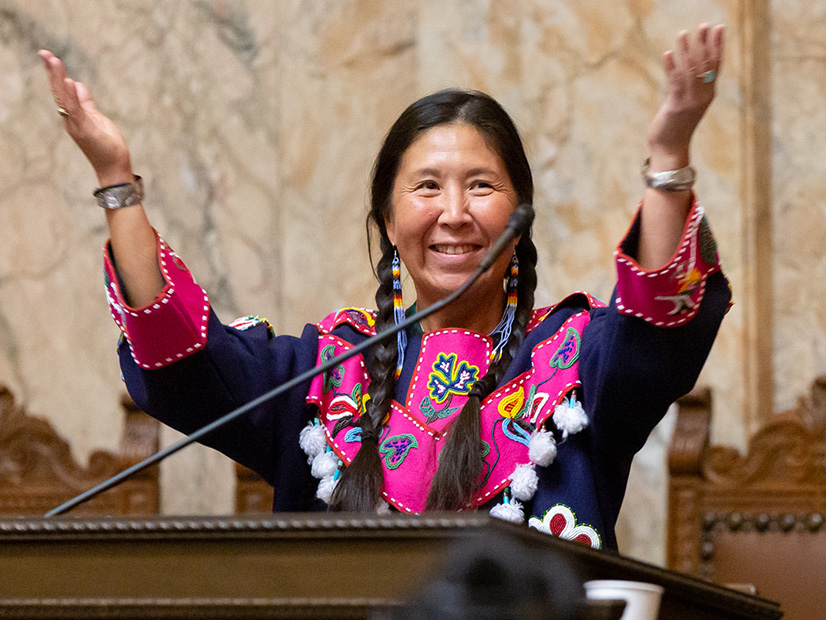Washington’s Senate unanimously passed a bill Friday that requires the state to consult with local tribes when it allocates certain climate change funds to projects that might affect tribal resources.
House Bill 1753 now goes to Gov. Jay Inslee for his signature.
Rep. Debra Lekanoff (D) of the Tlingit tribe, and the only Native American in the Washington legislature, introduced the bill to compensate for Inslee’s 2021 veto of a similar plank in a major cap-and-trade law in industrial emissions. Inslee faced political blowback after vetoing that provision and requested the plank be returned as a bill this session.
Because most of Washington’s tribes are federally recognized through treaties — with most signed in 1855 — they are considered sovereign governments and not as special interest groups or constituents in numerous dealings with the state and local governments. A tiny number of tribes did not sign treaties, which put them in a gray area in this distinction.
The state’s cap-and-trade law passed last year is expected to produce hundreds of millions of dollars in revenue. (See Wash. Becomes 2nd State to Adopt Cap-and-trade.) Other than money allocated to transportation and health projects, the rest of the money goes to a “Capital Investment Account” to pay for most climate change measures.
When money from the Capital Investment Account is targeted, Lekanoff’s bill requires the appropriate state agencies to identify impacts on local tribes, such as water and fishing rights, religious sites and other cultural matters. A tribal government then has the right to halt a project until it and any other affected tribes can consult with the state. Such consultations could be expanded into a formal review, which could transition to mediation.
While those steps are going on, the state cannot perform any formal planning or release any funding. HB 1753 also applies to any local government seeking money from the state Capital Investment Account.



